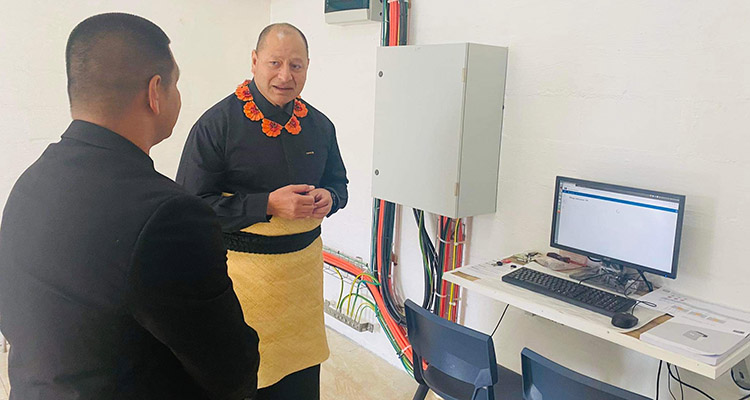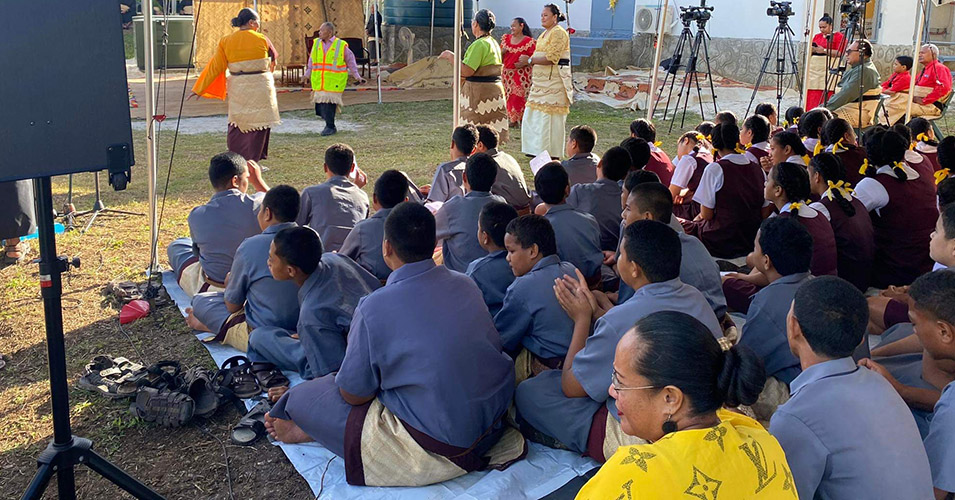
King Tupou VI commissioned a new mini-grid generation system and network distribution on Niuatoputapu today, 27 July.
The system will deliver clean, reliable, and efficient electricity supply to the people of Niuatoputapu, as well as 100 kilowatts of standby thermal power to ensure continued supply of energy during inclement weather.
The mini-grid comprises a hybrid system which can generate 150 kilowatts of solar power during peak hours and provide 295 kilowatt hours of battery storage.
This project was funded under the ADB-supported Outer Island Renewable Energy Project. The mini-grids were constructed as part of a $6 million contract across two phases which includes, the installation of mini-grid generation systems on four of the Ha’apai group of outer islands—‘Uiha, Nomuka, Ha’ano and Ha’afeva.
Ceremony
The King unveiled a plaque inspected the site.
The project is on track to be completed in December 2023, cofinanced by the Government of Tonga, the Government of Australia, the European Union, the Global Environment Facility, and the Second Danish Cooperation Fund for Renewable Energy and Energy Efficiency for Rural Areas.
“The Government of Tonga must be commended for its efforts towards reducing its dependence on fossil fuels and in promoting clean energy sources,” said ADB’s Pacific Subregional Office Regional Director, Aaron Batten. “ADB is a long-standing partner of Tonga in the energy sector and our commitment to this partnership continues.”
It is building solar generating facilities with a total distribution capacity of 1.32 megawatts at peak use, which is expected to reduce diesel imports by an estimated 480,000 liters a year. The project is also funding the rehabilitation of the electricity distribution networks on ‘Eua and Vava’u.
Tonga imports diesel for over 75% of its electricity needs. The high cost imposes a heavy burden on consumers and underpins the economic growth. The country is highly vulnerable to fluctuations in international fuel prices, and the government is planning to increase the use of renewable energy in order to lower diesel imports, increase energy security, and reduce the cost of electricity.
ADB is committed to achieving a prosperous, inclusive, resilient, and sustainable Asia and the Pacific, while sustaining its efforts to eradicate extreme poverty. Established in 1966, it is owned by 68 members—49 from the region.




